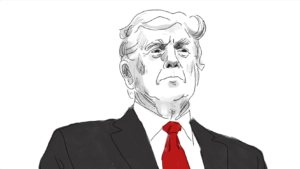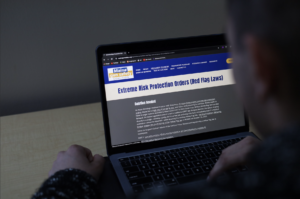The University of Maine has “an estimated 99” students and faculty from the seven countries from which immigration is suspended by Trump’s Jan. 27 executive order, according to UMaine Marketing and Communication. Academic institutions around the world are dealing with students afraid to return home from visiting family or canceling research trips.
A Washington State federal judge, James Robart, granted a temporary restraining order intended to prevent enforcement of the executive order until a hearing can be held to decide if it will be struck down. A federal appeals court has affirmed the decision.
“We have 230 students at the University of Washington and Washington State University that will no longer be able to effectively travel to do their work” Washington Governor, Jay Inslee, said in an NPR interview.
Despite the temporary restraining order (TRO) UMaine has had its share of academics whom the executive order has prevented from performing work abroad and seeing their families. UMaine is advising some students and faculty not to travel out of the country for the time being.
Mehdi Tajvidi is an Assistant Professor of Renewable Nanomaterials and a Cooperating Assistant Professor at the Advanced Structures and Composites Center and Forest Bioproducts Research Institute. Tajvidi is no stranger to travel or academics; by the time he began working at UMaine, he had nearly a decade of research experience. After receiving his B.S, M.S. and Ph.D. from the University of Tehran in Natural Resources, Tajvidi worked as a researcher and a visiting professor at the University of Tokyo and the University of Waterloo in Ontario, Canada as well as eight years as faculty at the University of Tehran.
Tajvidi is dealing with both academic and emotional pressures due to the executive order. “For the first time in my life as an academic I was not able to do my job the way I usually do…since the executive order became effective myself, my family and my students are all affected in different ways.”
Tajvidi has attended over 30 international conferences, but his plan to attend an upcoming Nanotechnology conference has fallen through due to uncertainty.
“It happens every year, two years ago it was in Atlanta, Georgia, last year it was in France, both of them I went. The next one is in Montreal, Canada and I’m not going. At this time I can’t go because I have received advice from the university not to.”
Attempts have been made by members of the Iranian-American community to voice their concerns to the university. These attempts have been met with silence.
“We basically drafted a letter to the upper administration asking them to convey our concern to the congressional people in Maine; this has not happened yet,” Tajvidi said.
Hosain Haddad Kolour is a Graduate Research Assistant at the University of Maine. He is here on a single entry visa which he received in 2015 from the United States Embassy in Dubai. Kolour’s academic and professional experience is extensive. He has co-authored four publications. He worked as a civil engineer, an instructor at the Islamic Azad University, a teaching assistant and research assistant at UMaine. He was the founder of an engineering consulting firm. He ranked in the upper 0.07 percent on the Math-Physics, Iran National University Entrance Exam and upper 0.7 percent on the Civil Engineering, Iran National University Entrance Exam. He has placed in the top three in dozens of engineering contests in Iran.
Kolour and his wife are expecting twins in April. About two months ago, the couple made an appointment at the U.S. embassy in Armenia for March 17 to renew his visa. After Trump signed the executive order, they received an email from the embassy stating that the appointment had been canceled.
They had planned to visit Ms. Kolour’s parents in Iran for three months once their children were born and then bring her parents to the U.S. to live with them and help raise the children. “In this situation, both of these plans are canceled,” Kolour said.
Following the temporary restraining order imposed on the executive order, Kolour called the embassy and explained the situation. The embassy told him they must make another appointment. Kolour checked the schedule and all appointments were reserved until after September.
This event has delayed the Kolour family’s plan for at least four months. “Now we don’t know what we should do. We had all our planning based on help from my wife parents,” he said.
Forest Resources Ph.D. student Seyyed Mohammad is concerned about the image the executive order paints of Muslims. He mentioned the fact that nobody in the U.S. has been killed by extremists with family backgrounds in these countries in many years. He and his family planned to attend his brother-in-law’s wedding in the summer, but now they are afraid they will not be able to return home.
Mohammed spoke of concerned international students’ reactions around the UMaine community, but could not refer sources. “Some people are afraid to talk about it because they are on visa and don’t want issues,” he said.
The University of Maine System has released a statement expressing their support for cultural diversity and equality but did not directly address the executive order.
University of Maine’s Marketing and Communications Office has released the following statement:
“An estimated 99 UMaine faculty, staff, students and their family members from the seven countries were affected. Note that UMaine’s Office of International Programs does not track U.S. citizens or legal permanent residents who obtained the status through a family-based petition, refugee/asylee or employment at another institution.”
With FERPA and UMaine’s commitment to students’ privacy and individual rights, UMaine does not make public the immigration status of our community members.












